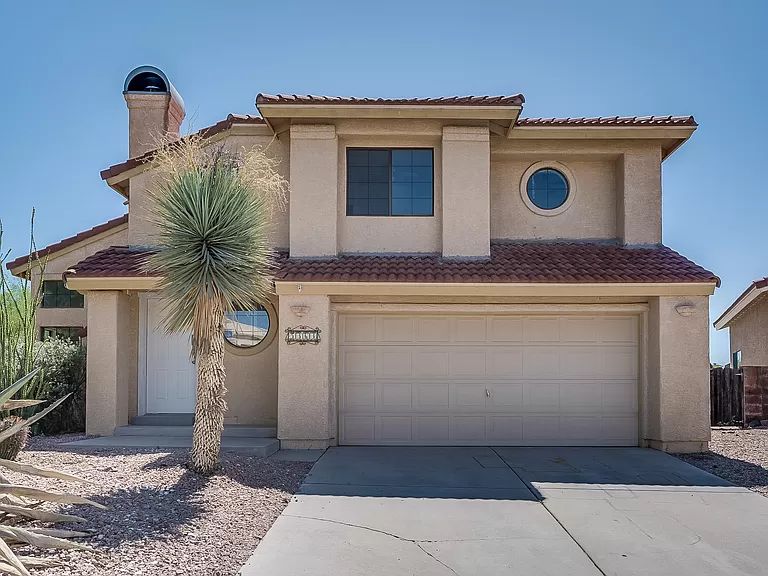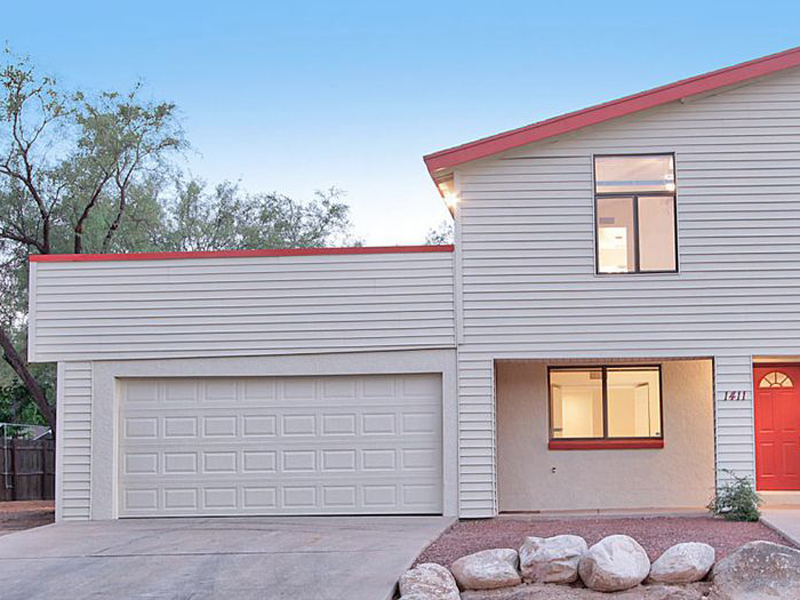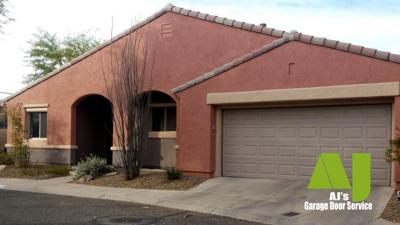Is Your Garage Door Stuck? Here's What to Do First
When your garage door will not open up, start with these essential security checks before trying any type of fixings. First, make sure nobody is standing near the door and that automobiles are free from the opening. Look for noticeable signs of damages like broken panels, bent tracks, or hanging cords. If you see a snapped spring or significantly damaged parts, quit promptly and call an expert—-- these fixings need specialized tools and know-how to take care of safely.

Examine These 6 Things Before Calling a Specialist
Before assuming you need pricey repair work, go through this fast diagnostic list that solves most garage door problems:
-
Source of power: Confirm the opener is plugged in and the outlet is working
-
Remote batteries: Change dead batteries in your remote control
-
Hands-on lock: Inspect if somebody unintentionally involved the hands-on lock
-
Obstructions: Try to find debris blocking the door's course or sensors
-
Emergency release: Make certain the red emergency cable hasn't been pulled
-
Breaker: Confirm the garage circuit hasn't tripped
These basic checks fix about 70% of garage door problems without needing expert intervention.
10 Common Factors Your Garage Door Will Not Open Up
Recognizing why your garage door opener isn't working helps you choose the appropriate solution. Right here are one of the most frequent reasons property owners experience:
Dead remote batteries stand for the most basic fix—-- when batteries pass away, the remote can not send out signals to the opener. Power outages or stumbled breakers reduced electricity to the electric motor. Busted springs protect against the door from raising appropriately and require instant specialist interest. Sensing unit imbalance reasons safety systems to obstruct door procedure. Track obstructions quit rollers from moving efficiently. Motor overload triggers automated shutoffs when the opener finds resistance. Restriction switch problems perplex the opener about door placement. Cable damages interrupts the lifting device. Weather-related problems impact door activity during severe temperatures. Part wear from age gradually reduces system efficiency.
Problem # 1: Dead Remote Batteries
When your wall surface switch works but your remote doesn't, dead batteries are generally the perpetrator. A lot of garage door remotes make use of either 3-volt lithium or 12-volt alkaline batteries. Get rid of the back cover of your remote and inspect the battery type. Replace with fresh batteries and examine the remote. If it still does not work, you may require to reprogram it to your opener. Consult your opener's manual for specific reprogramming instructions, as the procedure differs by manufacturer.
Issue # 2: Power Supply Issues
Garage door power troubles often stem from loosened connections or stumbled circuits. Examine that the opener is firmly linked into its electrical outlet—-- resonance can loosen links with time. Test the outlet with one more tool to confirm it's working. Examine your home's breaker box for tripped circuits, particularly if you've experienced storms or power changes. GFCI outlets may have tripped and need resetting. If the opener has power yet won't respond, the problem likely lies in other places in the system.
Issue # 3: Broken or Damaged Springs
Busted garage door springs are among one of the most harmful elements to handle. If you hear a loud bang from your garage or observe the door feels incredibly heavy when trying to lift manually, a spring has most likely snapped. Torsion springtimes run horizontally above the door, while expansion springtimes sit on either side. Never try spring repair services yourself—-- these components store incredible stress that can trigger significant injury or death. Expert replacement generally sets you back $150-$300 yet guarantees your safety and security.
Trouble # 4: Blocked Safety And Security Sensing Units
Modern garage doors include safety sensors that prevent closure when items are discovered. These sensing units can quit the door from opening if they're unclean, misaligned, or blocked by particles. Tidy sensor lenses with a soft cloth and guarantee absolutely nothing blocks the unseen beam in between them. Check that sensing units are effectively aligned—-- the majority of have indication lights that show connection standing. Sensing unit troubles usually fix with simple cleaning and modification.
Trouble # 5: Track Obstructions or Damage
Garage door tracks overview rollers as the door goes up and down. Dirt, particles, old oil, or little items can jam the system. Examine tracks aesthetically and remove any kind of obstructions with a brush or cloth. Look for dents, flexes, or bending that can impede smooth operation. what to do if garage door won’t close at night Minor track adjustments are possible for handy property owners, however significant damages needs specialist repair to prevent more troubles or security hazards.
Problem # 6: Garage Door Opener Electric Motor Issues
When the garage door motor runs yet the door doesn't relocate, numerous problems could be responsible. The electric motor might be overwhelmed and shutting off as a precaution. Equipment wear, specifically in older units, can prevent proper procedure. Chain or belt drive problems influence power transmission. If you listen to uncommon grinding, clicking, or humming noises, quit utilizing the opener right away. Motor repair work commonly cost more than substitute, particularly for systems over ten years old.
Step-by-Step DIY Troubleshooting Guide
Follow this methodical strategy to garage door troubleshooting while focusing on security throughout the procedure:
Action 1: Test the wall switch first. If it functions however the remote does not, concentrate on remote issues. If neither works, inspect power supply.
Step 2: Take a look at the hand-operated launch cable. If it's been drawn, the opener is disengaged from the door. Press the trolley back to reconnect.
Step 3: By hand examine the door by disengaging the opener and trying to lift the door by hand. It needs to relocate efficiently and stay in area when half-open.
Tip 4: Inspect noticeable parts for damages, paying special attention to springtimes, cords, and tracks.
Step 5: Check all security attributes including sensing units, restriction buttons, and auto-reverse features.
Action 6: Test different controls (remote, wall surface button, keypad) to isolate the issue resource.
Constantly use shatterproof glass and work handwear covers when carrying out assessments, and never ever attempt repairs on springtimes or high-tension components.
When to Call a Professional vs. do it yourself Solutions

Knowing when to call a garage door specialist versus attempting DIY repairs protects both your security and your budget. Deal with these issues yourself: dead remote batteries, power supply issues, small track cleansing, sensing unit cleansing and placement, and fundamental lubrication.
Never ever attempt these repairs yourself: spring replacement or modification, cord fixings, major track adjustment, electric wiring problems, opener motor substitute, or any repair service including high-tension parts. Specialist professionals have actually specialized devices, training, and insurance policy to manage unsafe repairs safely.
Take into consideration repair work prices versus replacement prices, specifically for doors over 15 years of ages. Modern garage doors use much better security features, power efficiency, and integrity than older versions.
Emergency Situation Garage Door Solutions
When you're stuck with a garage door that won't open and need immediate access, adhere to these emergency procedures:
Handbook Operation: Pull the red emergency release cable to disengage the opener. This enables hands-on operation however calls for correct strategy to prevent injury. Raise the door slowly and equally, utilizing leg muscular tissues as opposed to your back. Most residential doors evaluate 100-150 extra pounds, making them convenient for most adults.
Momentary Solutions: If the door opens manually but will not keep up, prop it open with sawhorses or clamps—-- never ever utilize your body or lorries as assistances. For doors that will not shut entirely, ensure the opening is protected if you need to leave.
Emergency Service: Numerous garage door business offer 24/7 emergency situation service for scenarios entailing security problems, caught lorries, or total system failures. While much more pricey than regular service telephone calls, emergency situation repairs give instant solutions when needed most.
Safety and security Warning: What NOT to Do
Garage door security requires comprehending unsafe repairs that must never be attempted by house owners:
Never attempt to fix springs—-- they keep sufficient energy to trigger deadly injuries when they snap or are poorly dealt with. Do not require a stuck door—-- this can harm the opener, tracks, or door panels, developing much more costly troubles. Prevent bypassing safety and security features—-- sensing units and auto-reverse devices avoid significant injuries and residential or commercial property damage.
Do not ignore unusual noises—-- grinding, scratching, or banging sounds show issues that get worse gradually. Never make use of the door if cords are torn or broken—-- the door might fall unexpectedly. Don't try electric fixings unless you're a certified electrical contractor—-- garage door openers utilize both 120V home existing and low-voltage control circuits.

Preventative Maintenance to Prevent Future Problems
Regular garage door maintenance prevents most common issues and expands system life-span considerably:
Month-to-month Tasks: Visual inspection of all elements, evaluating auto-reverse safety attributes, examining and tightening up equipment, and cleaning tracks and sensors.
Quarterly Tasks: Lubing all relocating parts with appropriate garage door lubricant, testing manual operation, and checking climate securing.
Yearly Jobs: Expert evaluation and tune-up, spring modification if required, and opener upkeep including belt or chain modification.
Seasonal Jobs: Getting ready for climate extremes, inspecting insulation, and readjusting opener settings for temperature level adjustments.
Constant maintenance expenses much less than emergency fixings and guarantees trusted procedure year-round.
Garage Door Won't Open Up Frequently Asked Questions
Why won't my garage door open with the remote but collaborates with the wall button?
This usually suggests dead remote batteries, signal disturbance, or the demand to reprogram the remote. Check batteries first, after that consult your opener guidebook for reprogramming guidelines.
Can I by hand open my garage door if the power is out?
Yes, pull the red emergency situation launch cable to disengage the opener, after that raise the door manually. Be planned for the door's full weight and lift with correct technique to prevent injury.
Exactly how do I recognize if my garage door spring is damaged?
Signs consist of a loud bang from the garage, the door feeling exceptionally heavy when raising by hand, visible spaces in the spring coils, or the door only opening up a few inches prior to stopping.
Is it secure to utilize my garage door if it won't open up completely?
No, partial operation indicates mechanical issues that can aggravate unexpectedly. Stop using the door and have it examined by an expert to stop further damages or injury.
What should I do if my garage door opens up but won't close?
Examine safety sensors for blockages or imbalance, check out the tracks for particles, and test the auto-reverse feature. If these don't solve the problem, get in touch with an expert.
How much does it cost to fix a garage door that won't open?
Prices differ extensively depending upon the issue: battery substitute ($5-$10), expert medical diagnosis ($50-$100), spring substitute ($150-$300), or opener substitute ($200-$500).
Can weather impact my garage door's capacity to open?
Yes, severe cold can thicken lubricants and affect steel elements, while heat can cause development concerns. Many troubles settle as temperature levels normalize, yet consistent problems may need specialist attention.
Why does my garage door open a few inches after that quit?
This typically indicates busted springs, restriction button troubles, or track blockages. The opener's safety features stop procedure when resistance is identified, stopping damages to the electric motor or door.
Obtain Specialist Help for Complicated Issues
When do it yourself troubleshooting does not settle your garage door troubles, professional technicians give the know-how and devices required for safe, long lasting repairs. Certified specialists identify problems properly, utilize manufacturer-approved components, and supply guarantees on their job.
Professional solutions include: detailed system inspections, spring and cord substitute, opener repair service and replacement, track alignment and replacement, electric troubleshooting, and emergency situation service phone calls.
What to anticipate: ahead of time rates, qualified and insured technicians, same-day service for numerous repairs, and follow-up maintenance recommendations.
A lot of garage door firms offer free estimates for significant repairs and can offer instant remedies for urgent problems impacting home safety or car access.
Obtaining Your Garage Door Working Again
A garage door that will not open does not need to wreck your day or damage your budget. Begin with simple troubleshooting steps like inspecting power, replacing batteries, and analyzing for apparent blockages. Several problems have quick do it yourself services that bring back typical procedure within minutes.
However, recognize when specialist help is essential—-- especially for spring-related issues, electric issues, or facility mechanical failings. Trying hazardous repair services yourself runs the risk of serious injury and often creates more expensive troubles.
Routine maintenance stops most garage door issues and makes certain trustworthy procedure for several years to find. When issues do happen, address them promptly to avoid even more expensive fixings and preserve your home's safety and security and benefit. Whether you need a simple battery substitute or complete system overhaul, services exist to get your garage door functioning efficiently once again.